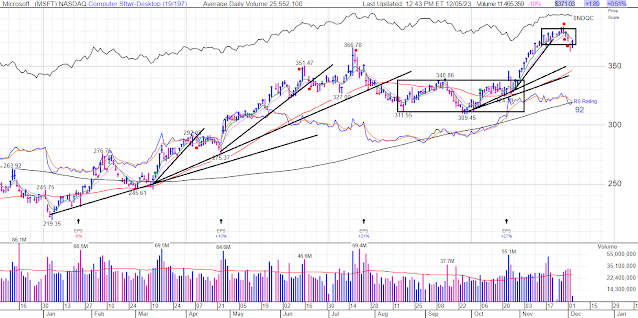Obstacles to Discipline
Obstacles
to Discipline
Discipline is often overlooked or merely given lip service by new
and experienced traders alike. Readily quoting clichés like, "Let profits
run and cut losses short" is not the same as truly understanding how to transform
ambiguous axioms into a practical disciplined process. There are many facets to
trading discipline and most are misunderstood. In many ways, 20% of trading
success is rooted in having a repeatable strategy that provides a probabilistic
edge and enough trading opportunities. While 80% of consistent profitability comes
from discipline. At the heart of trading discipline is understanding and mastering
your psychology. Making technical improvements to one’s strategy in post
analysis is considerably easy compared to the courage and commitment required to
overcome psychological obstacles. Without discipline you will never be
consistently profitable.
Anything that we interact with, we are in connection with. And
connection is, simply put, a relationship. It is something or someone we are ‘relating
to’. This includes material objects like
a computer we use to look at charts, a car we use to run errands, a knife we
use to cut vegetables. It includes immaterial things as well, such as our
thoughts, emotions, and physical sensations. Whatever we’re unaware of has
control over us. This includes how we frame our relationships. Today, I want to address how ones ‘sees’
discipline and their (usually unaware) relationship or attitude towards it.
Humans tend to unconsciously view everything from
a friend, foe, or neutral perspective. For numerous traders in one way or
another, discipline feels like something they “should do”. But, emotionally speaking,
taking action may feel hard or uncomfortable. How do you experience trading
discipline? Perhaps not as an outright enemy but not a welcomed friend either. Discipline
can seem similar to a teacher who gives a lot of homework on the weekend. You
know you should do it, want to get it done and hope for a good result but … it’s
not fun, requires effort, and isn’t what you were hoping for. In trading, we
know we should stick to our strategy, yet losing trades aren’t fun and we were
hoping for more profits.
Not many would recognize their adversarial or resistant attitude towards discipline yet that’s exactly what they have. Seeing something as a “should” can stir up all kinds of irrational responses. It can trigger different emotions for different people. “Should” carries with it notions of authority and control. Some individuals are naturally rebellious, others collapse under the pressure of needing to do things perfectly. It can bring up fear around making mistakes and being wrong. Of course, it’s human nature to avoid what’s unwanted or unpleasant, but how do you take action when your strategy demands it? Intellectually it's obvious discipline is a good thing. If intellectual understanding alone were all that was required then everyone would be disciplined.
Trading is a microcosm of the psychological challenges we face in life. Why? Because we cannot control price action, trading is an exercise in uncertainty, powerlessness and impermanence. Because how we perceive loss and gain can evoke extremely intense emotions. All people want to believe they’re making decisions from a logical, rational place. But the truth is, humans make most (if not all) of their decisions emotionally. It’s biology. It’s physiologically how we’re wired. The first step towards developing steadfast, consistent discipline is to accept that you will never be an unfeeling automaton… emotions will always be present in your trading. And it’s how you intentionally cultivate the relationship you have with emotions like fear, greed, embarrassment, and doubt that determines whether they help or harm your discipline.
Begin by being aware of your emotions while you trade, especially
at decision points. Next, explore your beliefs and attitude around discipline. How
do you define and understand it? Is it just something you vaguely know you should
do? Or is it a friend looking out for your best interest? For me, discipline is
synonymous with boundaries. Boundaries aren’t ultimatums I give others like, "Don’t call me past 11 pm". Boundaries are guidelines I put in place to protect
me from accepting less than I deserve, less than my worth. Boundaries are about
protection. Protecting me from me and from outside forces, most of which, I have
no control over. Protection is a form of self-care. Self-care is about supporting and nurturing my well-being. In trading, I’m protecting my financial capital and my psychological
capital. I’m protecting my trust and confidence in myself. I’m
protecting myself from becoming overwhelmed with emotions that could harm my
trading performance.
From this perspective, discipline isn’t just a list of rules to
follow. Discipline is a welcomed and valued friend. Having this kind of "relationship" with discipline provides not just an intellectual reframing, but emotionally grounds
it in a compelling way. It provides the mental clarity and emotional resilience needed to exercise discipline in real-tine, to exit losing trades instead of
accumulating big losses, to trim only a little profit off winning ones at
strategic points instead of choking the trade. Yes, all traders must create
thoughtful trading strategies, plans, and rules for entries and exits, stop
placement, routines, etc. But emotional awareness opens the door to responding
rather than reacting to price action. Discipline that isn’t tethered to
something greater than willpower or intellectual rationalizations usually falls short as inconsistency or fails outright. The stronger an emotion is around a belief, the more you will believe it, and greater likelihood you’ll act congruently with that belief.

%202023_12_05%20(9_32_05%20AM).png)
Comments
Post a Comment